Photographs: Courtesy Tandem Communications
Graphic artist Divya Thakur has undertaken to create a show inspired by the animals we come across in Indian mythology.
'Animania', a graphic arts show curated by Divya Thakur strives to rekindle our love for animals, to create awareness and encourage efforts to give back to the natural world.
To achieve this, she and a group of international artists have worked on graphic art visuals inspired by the birds and beasts venerated in Indian mythology as deities and vahans (vehicles of gods and goddesses).
'Animania' is an attempt to create awareness and celebrate the beauty associated with each of them, translating the theme of sacred Indian animals into graphic art through the eyes of seven individuals. Other than Thakur, the team of artists includes Ingela P Arrhenius (from Sweden), Josh Brill (USA), Christian Montenegro (of Argentina), Leandro Castelao (Argentina), Seijiro Kubo (Japan) and Lokesh Karekar (Mumbai).
The concept of animal veneration is a prominent aspect of Indian culture. The artists were introduced to this concept and came up with a unique interpretation of their understanding, presenting it in a very contemporaneous style. Some of the animals that form a part of this show are the tiger (the vahan of Goddess Durga), the peacock (the vahan of Lord Kartikeya), the lion (a symbol of Rahu), the elephant (the vahan of Lord Indra) and the crocodile (a symbol of the Goddess Ganga).
"Most animals, from the majestic elephant and the tiger to the shy sloth bear and rare pangolins are fast becoming 'the hunted'. While time is running out for these creatures, it's not too late to help," says Thakur. "We believe we can make a difference if we consciously decide to give back to the planet, to give back to nature and help protect the environment and wildlife that we have neglected so far."
She continues, "The current state of wildlife in India is very alarming. Several endangered species are living critically on the verge of extinction. My company, Design Temple, is collaborating with national NGO Wildlife SOS; we have pledged 10 percent of all proceeds collected via the sale of 'Animania'-related products to the various animals that the NGO rescues and rehabilitates. The reason we decided to do this is because we believe we should be able to make a tangible difference through this effort and relish the pleasure of having saved a traumatised elephant or a hunted tiger. We will be partnering with various wildlife conservation organisations in the future to alert individuals of the rapid degradation of these animals' plight."
Here, we bring you a glimpse of some of the works from 'Animania', together with their symbolism in Indian mythology and the various gods and goddesses they are associated with:
The Garuda (Eagle)
Symbolism: Impetuous violent force and speed, keeping an eye on and rapidly advancing to destroy evil -- the eagle is known to swoop down upon serpents.
Divine association: The garuda is associated Vishnu The Preserver, who assumes various avatars to prevent great evils and effect good on earth.
'Animania' graphic art is on display at the Gallery BMB in Mumbai from November 24-28, 2010.
The crocodile
Image: The crocodileSymbolism: Absolving one's sins and conquering maya (illusion)
Divine association: Goddess Ganga, the Goddess of Purity
The tiger
Image: The tigerSymbolism: Preserving virtue and destroying evil
Divine association: Goddess Durga, the goddess of unlimited power and divine feminine force
The lion
Image: The lionSymbolism: A symbol of power, it represents the nature of Rahu -- slow, but attacking suddenly.
Divine association: Rahu, one of the nine planets (very powerful), associated with fame, fortune and prestige. It is one of the lunar nodes -- an eclipse occurs when the sun and moon are at one of these points. According to Hindu mythology, Rahu is a snake that swallows the sun or the moon, causing an eclipse.
The mongoose
Image: The mongooseSymbolism: It is believed to be the receptacle of all gems; when the God of Wealth presses the animal, it vomits forth riches.
Divine association: Kubera, Treasurer of the Gods/God of Wealth and Prosperity.
The black buck
Image: The black buckSymbolism: Relief from sorrows, purity and peace
Divine association: Chandra (the moon), God of Fertility
The elephant
Image: The elephantSymbolism: A symbol of royal power and also representative of a heavy rain cloud
Divine association: Indra, King of the Gods and God of War, Storms and Rainfall
The peacock
Image: The peacockSymbolism: A symbol of vanity, he is always shown holding a snake under his feet -- it represents the destruction of harmful habits.
Divine association: Kartikeya, the God of Conquering Vices (like pride, egotism, vanity and sensual desires) to achieve perfection.
The tortoise
Image: The tortoiseSymbolism: Sanctity and purity
Divine association: Goddess Yamuna (the Yamuna River)
The parrot
Image: The parrotSymbolism: The symbol of spring
Divine association: Kamdeva, God of Love and Desire
The owl
Image: The owlSymbolism: Wisdom and intelligence to use wealth for positive purposes
Divine association: Goddess Lakshmi, the goddess of wealth, success and fortune
The vulture
Image: The vultureSymbolism: Can be the greatest truoblemaker as well as the greatest wellwisher
Divine association: Shani (Saturn), a planet of immense power, appeased to ward off the evil eye. In the Hindu scriptures, Shani can have a great negative or positive impact upon life, as its astrological presence is very strong.

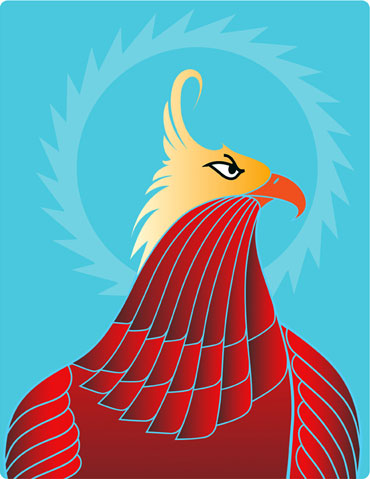
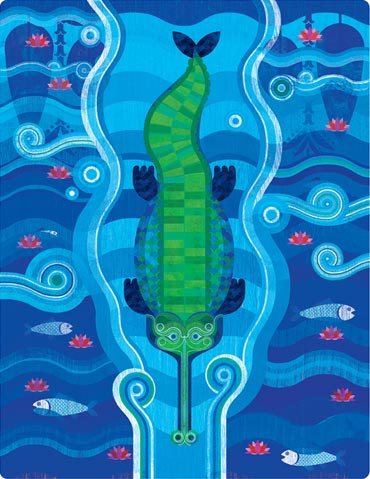
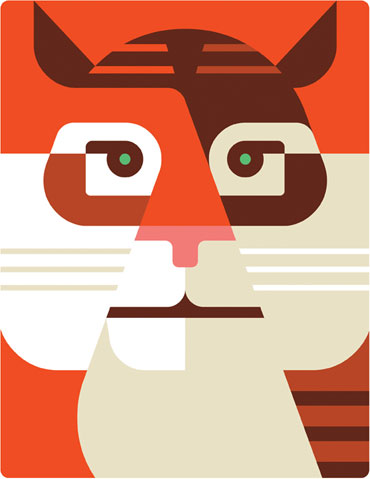
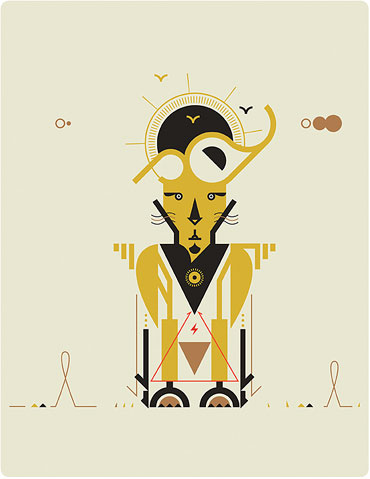
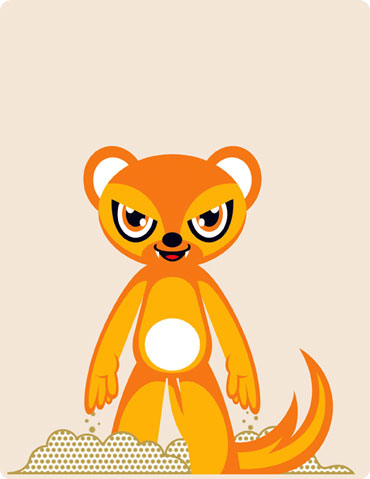
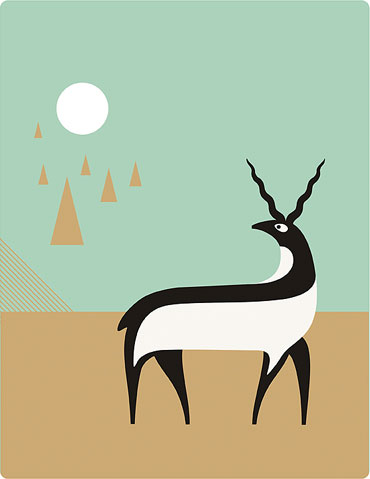

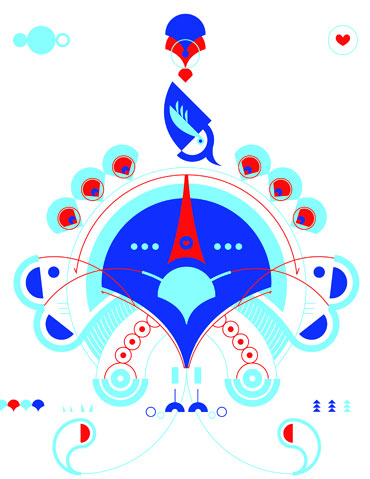
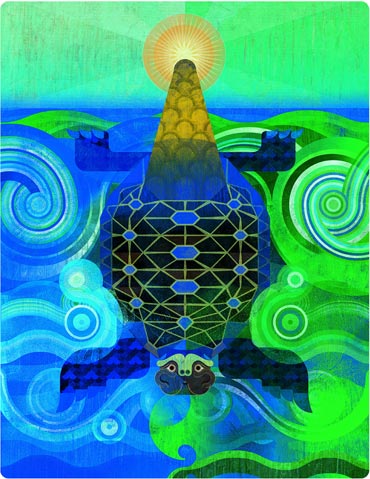
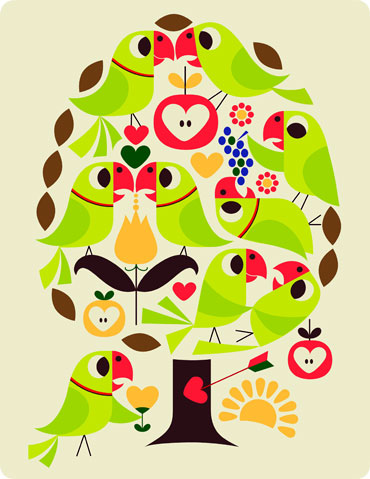
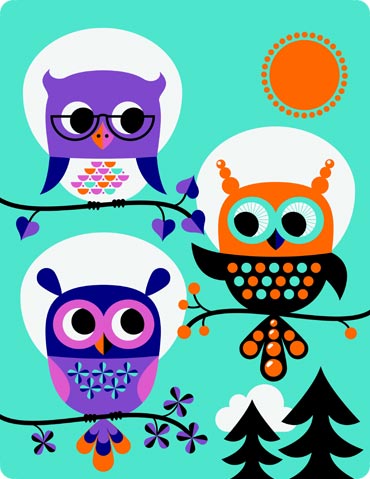
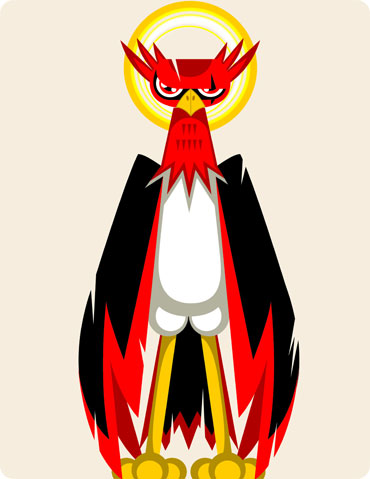
Comment
article